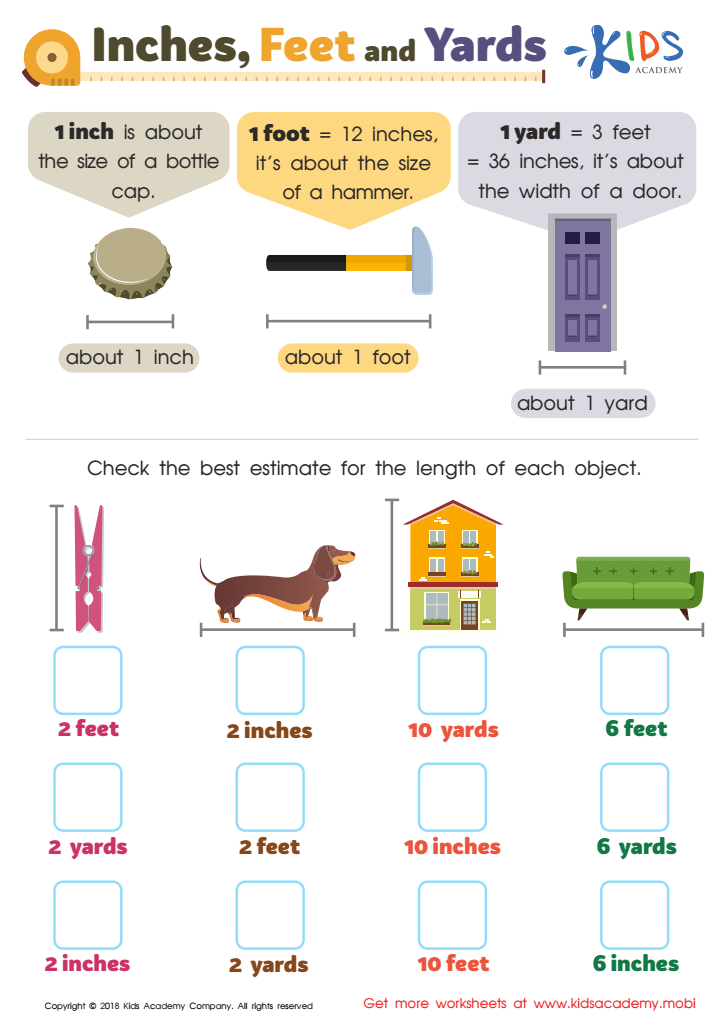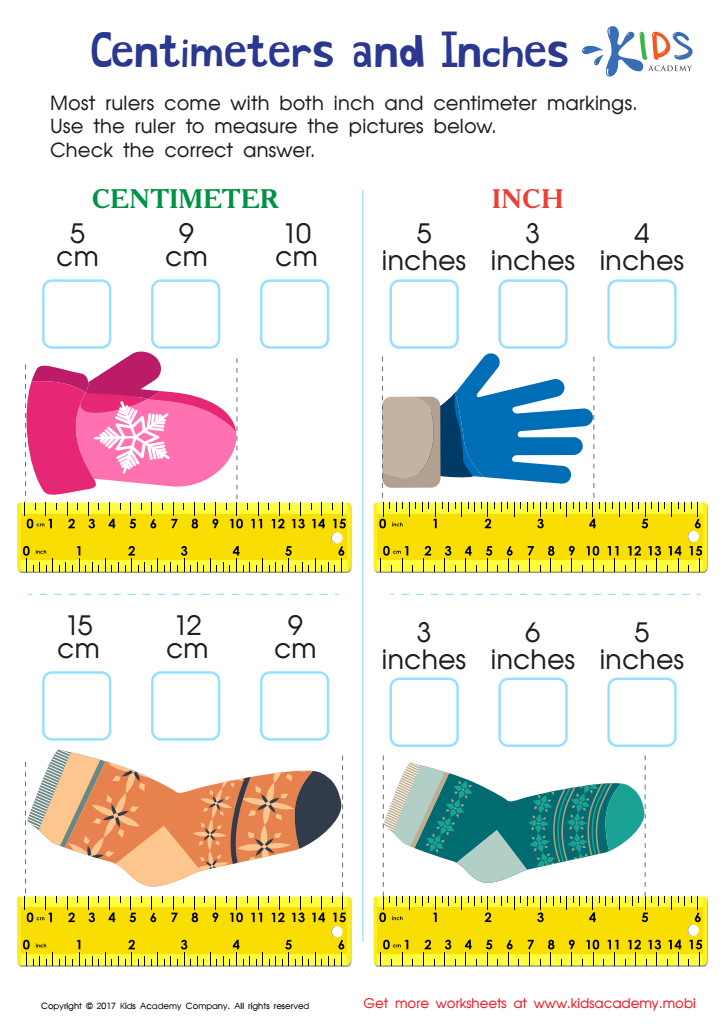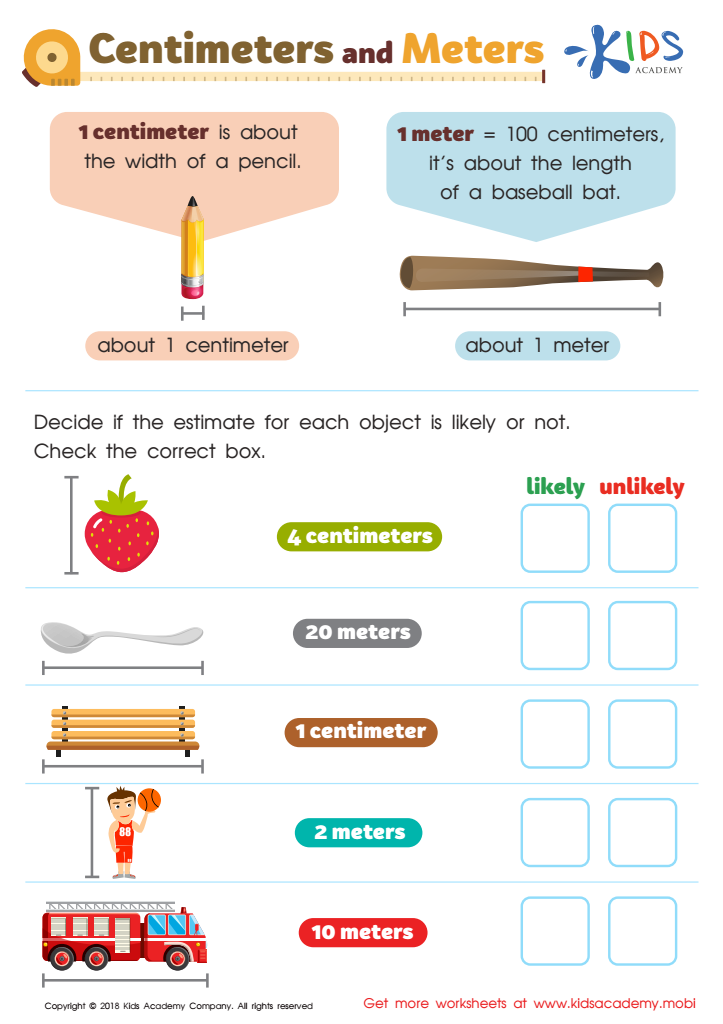Conversion skills Measurement Worksheets for Ages 8-9
3 filtered results
-
From - To
Enhance your child’s understanding of conversions with our engaging Conversion Skills Measurement Worksheets designed specifically for ages 8-9. These worksheets help students grasp essential skills such as converting measurements within the same system, including length, weight, and volume. By providing real-world contexts and fun exercises, our resources promote active learning and boost confidence in mathematical skills. Parents and educators will find that these worksheets are an excellent supplement to classroom learning, fostering critical thinking and problem-solving abilities. Easily downloadable and printable, our worksheets are perfect for homework, extra practice, or learning while on the go. Start your child’s measurement mastery today!


Inches, Feet and Yards Worksheet


Centimeters and Inches Worksheet


Centimeters and Meters Worksheet
Conversion skills measurement for ages 8-9 is crucial for both parents and teachers as it plays a vital role in children's mathematical understanding and real-world application. At this developmental stage, children are beginning to grasp fundamental math concepts, including conversions, which involve changing units such as inches to centimeters or cups to liters. Mastering these skills not only strengthens their overall math proficiency but also enhances their problem-solving abilities, critical thinking, and confidence in using math in daily life.
Parents should care because strong foundational skills in conversion can significantly affect their child's academic journey, influencing performance in future math-related subjects. Additionally, everyday activities, such as cooking or measurement in construction, provide excellent opportunities for practical application and reinforcement of these skills at home.
Teachers should prioritize conversion skills measurement as it allows for targeted instruction based on each student's proficiency. Assessment data helps identify gaps in understanding, enabling tailored interventions to support those struggling. Moreover, integrating conversion skills into lessons helps link theoretical knowledge to real-world contexts, making learning more effective and engaging. Ultimately, nurturing these skills prepares children not just for assessments but for practical life scenarios, laying the groundwork for lifelong mathematical literacy.
 Assign to My Students
Assign to My Students





















